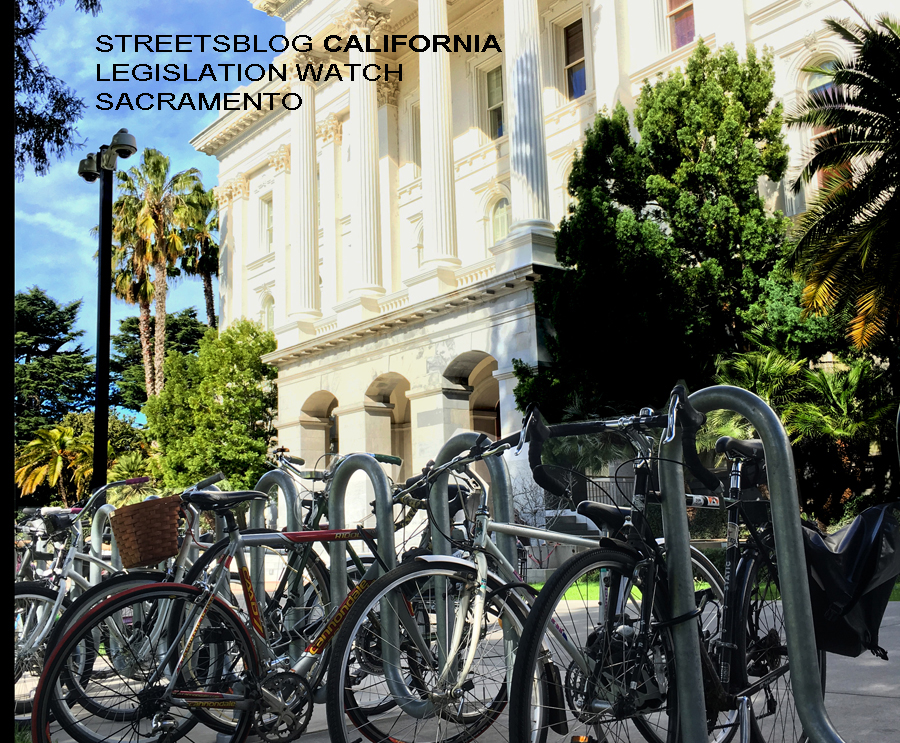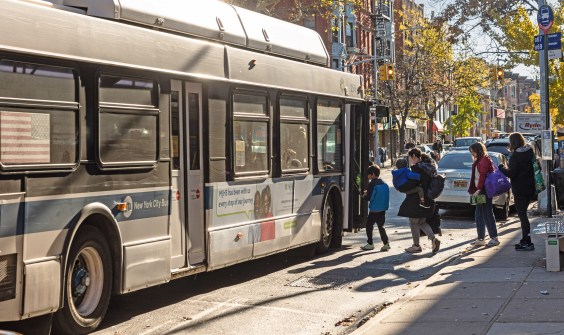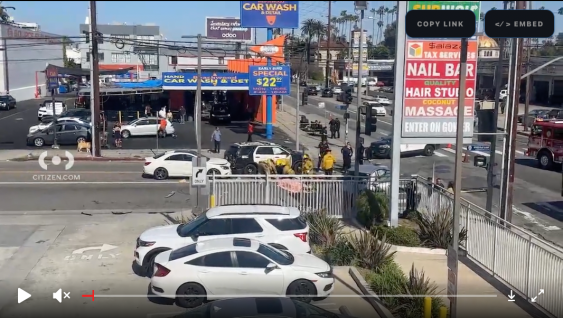Note: GJEL Accident Attorneys regularly sponsors coverage on Streetsblog San Francisco and Streetsblog California. Unless noted in the story, GJEL Accident Attorneys is not consulted for the content or editorial direction of the sponsored content.
Three bills from Senator Scott Wiener were passed by the Assembly Natural Resources committee yesterday, as the California legislature begins the final months of its session.
Now that the legislature has passed a budget bill, it is turning its attention to all the other bills awaiting their fate in the second house.
CEQA Exemption for Sustainable Transportation Projects
S.B. 922 would extend the provisions of a bill passed in 2020 that is set to expire. S.B. 288 allowed certain types of transportation projects to proceed without having to complete a full Environmental Impact Report under the California Environmental Quality Act. The assumption is that making safer conditions for bicycling and walking and improving the quality of transit would be a benefit to the environment. S.B. 922 would extend the exemptions in S.B. 288 until 2030.
It does not eliminate existing requirements for public outreach, and it adds a requirement for planners to do an analysis of any displacement that might happen as a result of a project. The bill defines qualifying projects as those that
- Make streets safer for walking and biking
- Speed up bus service
- Make it possible to run bus service on highways
- Expand carpooling options
- Build or modernize light rail stations
- Support parking policies that reduce drive-alone trips
- Improve wayfinding for people using transit, biking, or walking
They also cannot add new auto capacity nor demolish any existing affordable housing.
Supporting witnesses told the committee that S.B. 288 has helped speed up the completion of over two dozen projects in the short time it has been in effect, most of them bike and pedestrian projects. The bill has strong support from transit agencies, as well as from supporters of safer streets. Robin Pam, representing KidSafe San Francisco, told the committee that without the CEQA exemption from S.B. 288, the process to transform JFK Drive through Golden Gate park from a car cut-through to a "quiet, peaceful promenade" would not have happened.
"Even without CEQA, the city undertook a two-year community engagement process, during which they found there was strong support to make it permanent," she said. "Now, more people are replacing car trips with cleaner, safer modes," and the promenade is a safe place for all.
Assemblymember Tasha Borner Horvath told the committee, "I don't normally vote for CEQA exemptions, ever - but this one has my full support."
S.B. 922 passed with eight votes and now goes to the Assembly Appropriations Committee.
Climate Corporate Accountability Act
Senator Wiener's Climate Corporate Accountability Act, S.B. 260, also passed, although this one not surprisingly was opposed by the California Chamber of Commerce and various industry representatives, including the oil lobbyists at Western States Petroleum Association. The bill would require U.S.-based companies over a certain size to disclose their carbon footprint. This would help "end the practice of corporate greenwashing, where corporations selectively provide information" that makes them look like they're helping fight climate change "when in reality they have a significant carbon footprint," said Senator Wiener.
"We have some corporations that are already doing the right thing," he added. "This will level the playing field."
He also said that the bill does not require any reduction in that carbon footprint (although other legislation might do so). "All we are asking is that these large corporations use existing, well-developed methodologies to disclose information. We think the public and investors and policy makers should have full, transparent information," he said.
A representative from the California Chamber of Commerce complained that "this bill sets up businesses to fail," adding new and challenging requirements for them. She also complained that some of the bill's provisions would force them to either forgo accuracy or completeness, because trying to trace the carbon footprint of all of an industry's inputs would be difficult. In addition, "How would CARB [the California Air Resources Board] verify the data?" she asked.
"I get it when industry opposes regulations," said Senator Wiener in response. "But to so vociferously oppose literally just saying what your carbon footprint is should give us pause about how serious some companies are about climate."
Also, "I'm really disappointed in the Chamber of Commerce, because they are objecting to an amendment that we negotiated with them," he added. "Originally the bill required accuracy" for Scope 3 emissions, or lifecycle emissions from the products a company uses as inputs, which can be tricky to trace. "We worked out an amendment allowing them to use formulas and estimates, which is a normal part of Scope 3 reporting," he said.
"Now they're criticizing that amendment as not being exact enough. I had to call that out because that is not how we should be negotiating legislation in this building," said Senator Wiener.
"Some of the largest companies are already doing it," he added, naming Kraft, Walmart, and Texaco as examples. "Let's have them all do it."
The bill passed with seven votes, and now heads to the Assembly Judiciary Committee.
CEQA Exemption for Student Housing at Public Universities
Senator Wiener also successfully argued for another CEQA exemption, this one for student housing when certain conditions are met. S.B. 886 met with some impassioned opposition from representatives of two small cities that host large UC student populations: Goleta, near UCSB, and Santa Cruz. The representative from Goleta objected that the bill's cap on the number of units qualifying a development for the exemption is too high. The location of most UCSB student housing is being wedged between a wetlands and the airport, and adding an additional four thousand new students concentrated into one housing development would increase the population of that area by more than twenty percent, he said, adding that it could not be easily absorbed.
The representative from Santa Cruz said that the city and the university have been working hard on solutions to housing their students, but that without CEQA the city would lose "opportunities to address issues like transportation impacts."
When asked again which are the major impacts from housing that CEQA would help address, both city representatives named transportation impacts.
The conversation took a broader philosophical turn when Assemblymember Al Muratsuchi (D-Los Angeles) asked Senator Wiener, "What's the point of having a law if we're just carving out exceptions to it?"
"I'd be hard pressed to name a major law that affects this many aspects of life," responded Wiener. He added that S.B. 886 requires any exempted housing project to be part of the university's Long Range Development Plan, and that the LRDP is still required to go through the CEQA process. That is, it just streamlines the process at the individual project level, for specific types of projects.
"At what point do we lose the integrity of the original law?" asked Muratsuchi.
"I don't think it affects the integrity of the law," said Wiener. "There are things - like housing - that are fundamental to human life. There's something odd about granting exemptions to stadiums but not for housing."
Also, he said, "The students are already there. Not having the housing doesn't mean these students evaporate; they're living in crowded conditions or in cars."
S.B. 886 passed with six votes, with four committee members (Assemblymembers Boerner Horvath, Cristina Garcia, McCarty, and Seyarto) abstaining.





